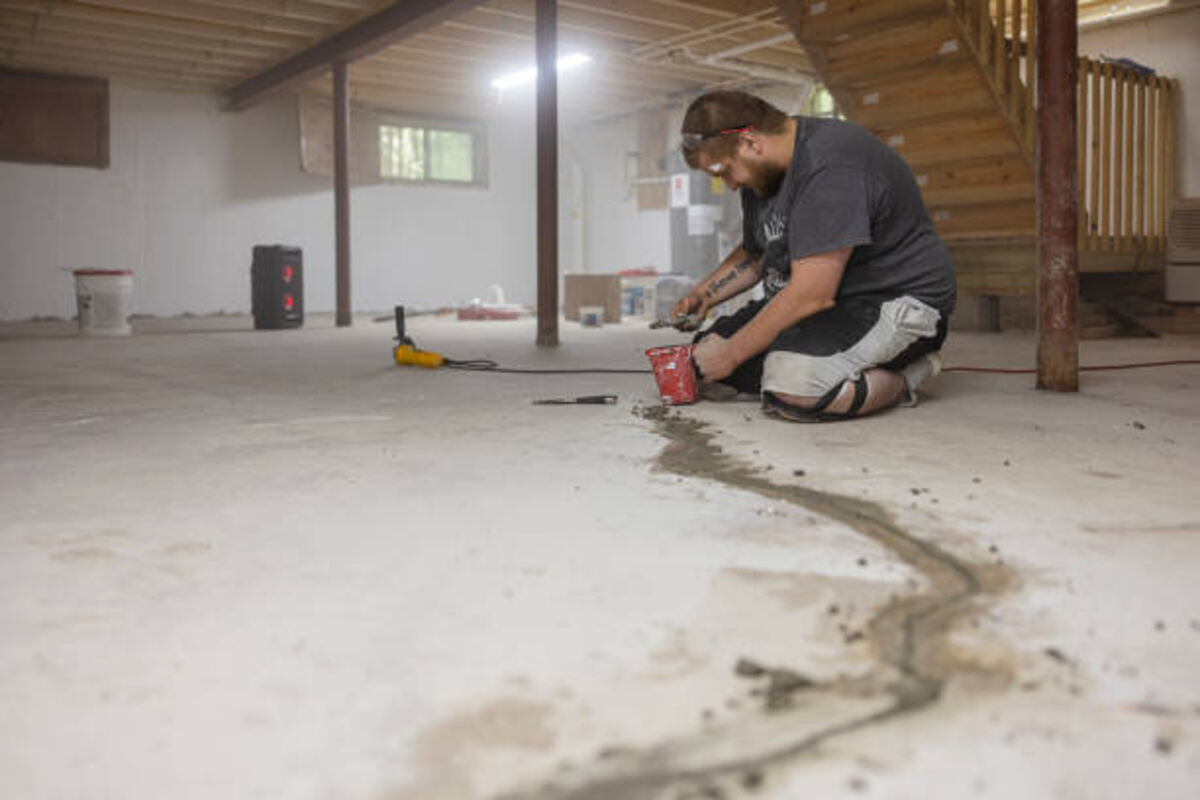Waterproof Paint For Concrete
Living in areas with heavy rainfall may leave your basement vulnerable to dampness and mold growth, but waterproof cement paint may provide the solution to help stop this before it occurs. Read the Best info about crawl space waterproofing.
The ideal waterproof paint for concrete provides a protective barrier that keeps moisture at bay and also serves to inhibit mildew growth and other moisture-loving organisms from taking root in its substrate. This paint may also prevent mildew growth.
Waterproofing
Waterproof paint for concrete acts as a protective shield to keep water out, helping prevent structural damage and mold growth, which is potentially hazardous to health, as well as reducing costly repairs or renovations. Waterproof cement paint comes in various formulations suitable for walls or floors, allowing easy application.
Acrylic waterproof paints are an effective and durable option for protecting cement surfaces. They can be used on surfaces ranging from basement walls and floors to exterior walls, fiberglass strands, and recycled plastics for improved performance. Acrylic waterproof paint comes in various sheen levels, from completely flat to semi-gloss, for an easy application process.
Liquid rubber can also provide adequate concrete surface protection and can be easily applied to both existing and new structures. Once it dries out, it forms a resilient elastomeric membrane that can be stretched or compressed without harming the surface below. Liquid rubber provides many benefits beyond protection, including chemical resistance, insensitivity to humidity during application, and excellent adhesion to substrates.
When purchasing waterproofing products for your home or commercial property, you must read and adhere to the manufacturer’s instructions closely. If this process is foreign to you, consider seeking professional help so your structure remains safe from leakage and flooding.
Liquid Rubber
Liquid rubber is a waterproof paint that dries into a complex, resilient coating that offers protection from mold, mildew, moisture, and sunlight damage to various surfaces, such as concrete and brick. Two coats should provide optimal results; otherwise, the surface must be clean of dirt, mildew, or other living organisms before you apply this material, although you can also use it to damp surfaces.
Once applied, concrete must be cured 24 hours before use. During this period, pedestrian traffic and vehicles should remain off of the surface. Once complete, liquid rubber can be applied using either brushing or rolling and used over existing paint layers; it may even cover existing ones – although silicon or certain smooth or shiny surfaces will prevent this.
To choose an effective waterproof paint, it’s crucial to take several factors into account, such as cost, durability, and environmental concerns. Also essential are proper surface preparation and priming techniques so the waterproof coating adheres well and lasts as promised; regular inspection and maintenance of this coating are recommended to protect the underlying concrete from any potential damages.
Cost
Waterproof paint is a type of specialty paint designed to form an impregnable barrier between surfaces and moisture, protecting them from any potential moisture-induced damage and mold/mildew growth. Its formulation allows it to seal concrete and masonry surfaces, resist weathering, prevent weather-induced weathering, and prevent mold/mildew growth on them. Available in both clear and colored options, waterproofing paint may cost more than traditional options but is an investment worth making for both homes and businesses alike.
Before selecting a waterproofing paint, carefully consider its environment and usage. Is the concrete exposed to moisture on an ongoing basis, like in a basement, or only occasionally? After considering this factor, assess its needs with regard to durability and aesthetics—for optimal results, select one compatible with both concrete and the chosen waterproofing paint that will stand the test of time.
Factors that contribute to waterproof paint’s longevity include its ability to resist moisture and UV rays, resistance against mold and mildew growth, and its ease of application. To maximize its lifespan, ensure correct application, and follow proper maintenance procedures when using waterproofing paint on surfaces containing contaminants, making sure they have been primed thoroughly first is also crucial.
Reliability
When choosing waterproof paint for concrete, be sure to select a product with an effective barrier that prevents moisture from penetrating the pores of the cement surface and leading to cracking and efflorescence. Furthermore, choose waterproofing paint that bonds well with cement surfaces in order to ensure lasting protection.
There is an array of waterproof paint options on the market, each offering its advantages and drawbacks. Epoxy waterproof paints offer extreme durability against abrasion but may be less breathable than alternatives and challenging to clean up afterward. Polyurethane waterproof paints provide flexibility against temperature changes as an ideal exterior concrete surface option.
Integral waterproofing admixtures are another effective means of waterproofing concrete structures, providing a protective layer in their pores during hydration. They usually consist of long-chain fatty acid derivatives and stearates; however, these products should not be used on larger structures as they may reduce compressive strength [31].
Waterproof paints not only offer protection from water damage but can also enhance the aesthetics of cement surfaces. Available in a range of colors and finishes to complement your home design scheme, these waterproof coatings come in handy in more ways than one!
Read also: What Licenses Are Needed to Start a Landscaping Business?


